33 Things All Parents Should Know Before Getting Divorced
Think your kids are a handful now? Oh, just you wait.

Ending a marriage is rarely an easy decision. But when there are kids involved, things become a whole lot more complicated. While some things are standard in any split—like the division of financial assets, or fighting over that really comfortable chair in the living room—what no parent is prepared for is how much it can change your relationship with your children too. From how much kids might start to resent you to what they really think of those new romantic partners, here's everything all parents should know before they sign those papers.
1
It may not fix the problem you're trying to solve.
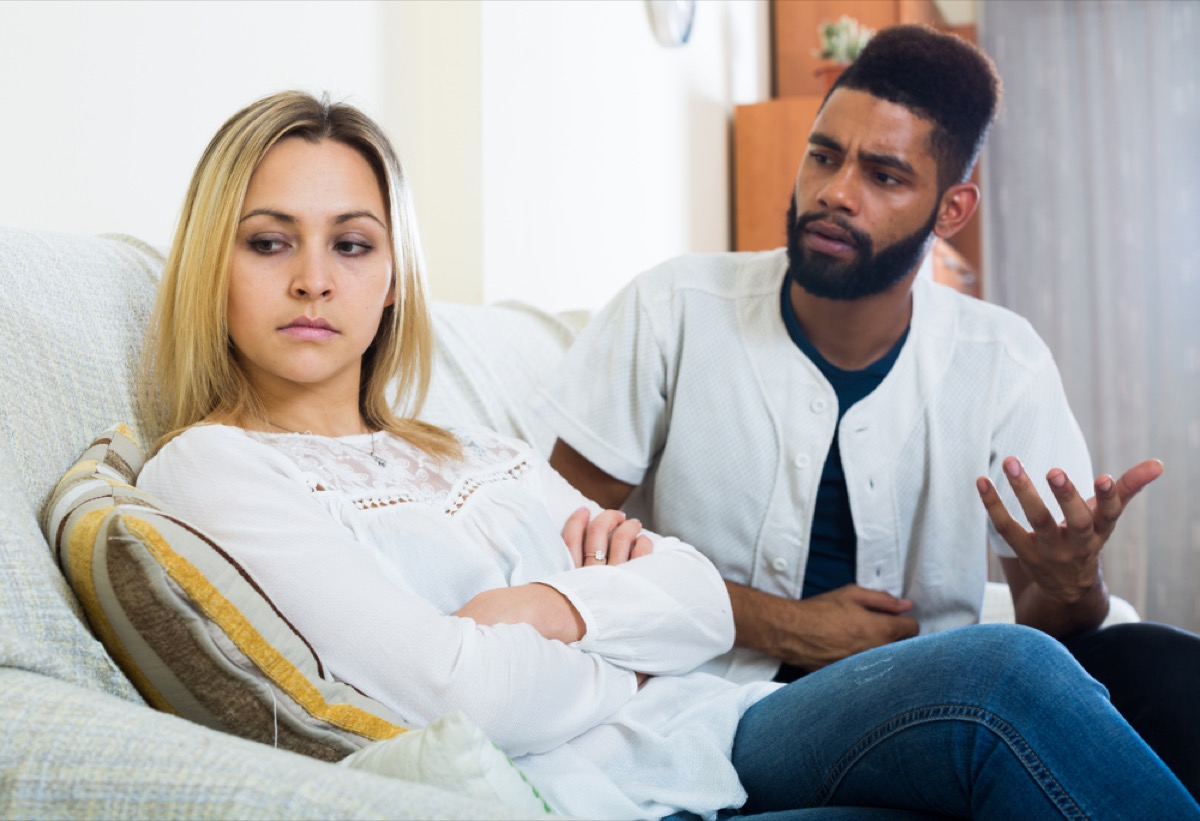
Just because you've moved on from your spouse doesn't mean you're necessarily done dealing with all the things you found so frustrating about your relationship with them.
"Many couples have split up hoping to get away from a controlling spouse, intense arguments, and general conflict. Unfortunately, when you have kids in the picture, you still have to work together to raise them. So controlling behaviors around finances become controlling behaviors around child support. Arguments about schedules become… arguments about schedules," says marriage counselor Raffi Bilek, LCSW, director of the Baltimore Therapy Center. "Divorce may be what you need, but then again, it may not solve the problem you're hoping to get away from."
2
Your kids may resent you.
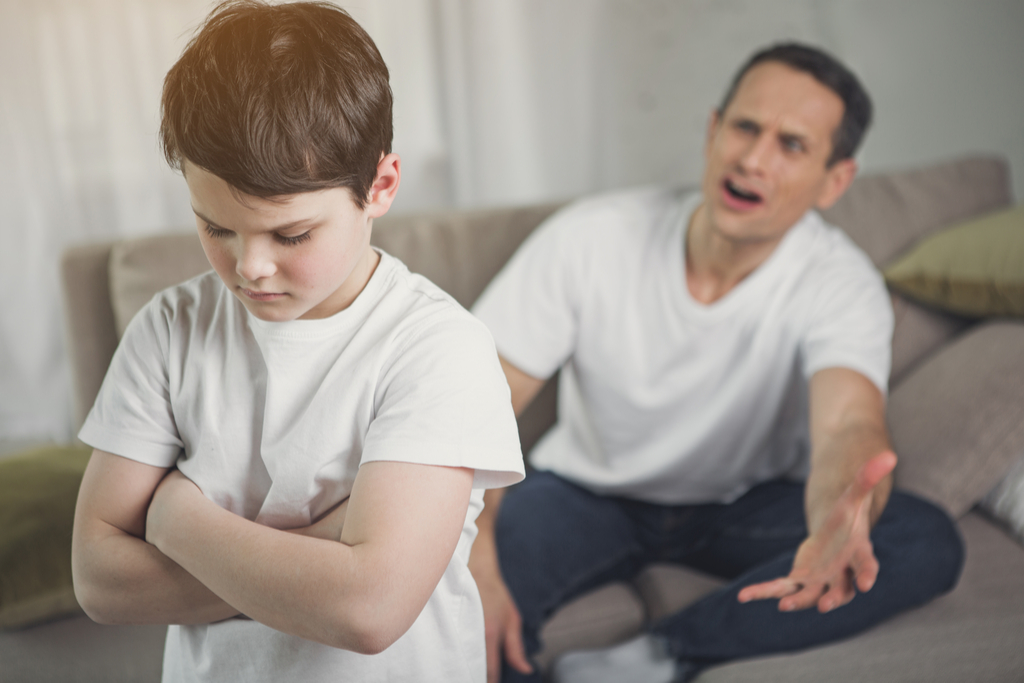
"This is true even if you are the wronged party and you've truly decided that divorce is the best path for you and your family," says Bilek. "Such subtleties can be lost on children; they may blame you for breaking up their family and hold it against you for some time." And while these feelings may not last forever, knowing that they're a possibility going into your divorce can definitely lessen the blow.
3
It's going to cost you a lot of money up front.

A contentious divorce is not going to come cheap, especially when you have to factor in costs like childcare to attend mediation, or therapy for your kids. "This is not to say you should not do it—just that you need to take this into account before going ahead with a divorce, especially if there is a lot of contention," says Bilek. "Lawyer bills rack up really fast, and this is likely to have an impact on both of you (and therefore on the kids)."
4
You'll likely have less disposable income post-divorce.

If you think raising kids is expensive as it is, just wait until you're doing it as a single parent. "You will have a lot less money afterwards," says Bilek. "Not only will the process of splitting up into two households cost a good deal, the ongoing expenses of running two households can be significant."
5
Your kids may not be as eager to spend time with you as you'd hoped.
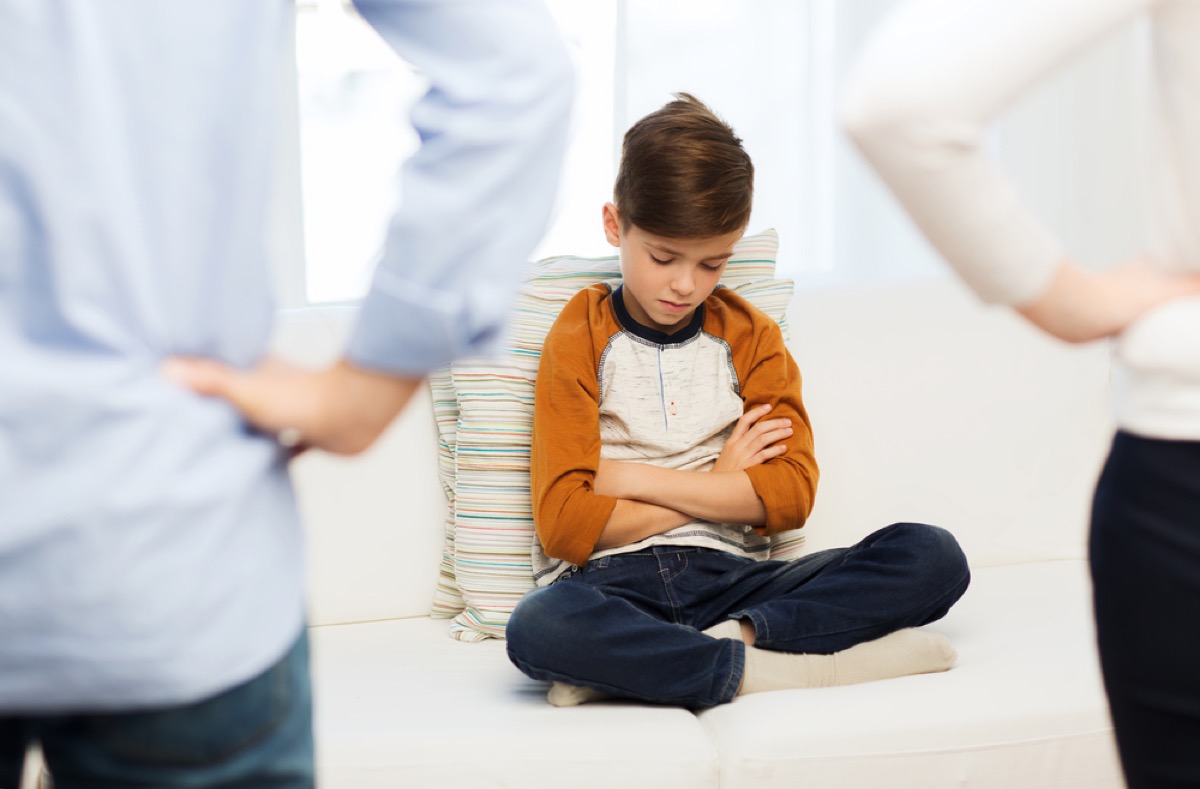
Before a divorce, it was a given that you'd see your kids every day—but that's likely no longer the case after a divorce. In fact, they may not even want to spend as much time with you. "It is now up to the child to say yes or no about spending time and making plans," says therapist Lynn R. Zakeri, LCSW. "Parents often miss the kids, but the kids don't miss the parents in the same way, and like any other one-sided feeling, that is harder to hold and manage."
6
You may feel taken advantage of.

With the guilt that often accompanies a divorce, you might find yourself spending more on your on your kids—and feeling taken advantage of in the process. "Parents used to provide dinners, shopping, all that jazz, [but] it now feels like they are being taken advantage of rather than appreciated," says Zakeri.
7
Your kids may find their self-esteem falling.
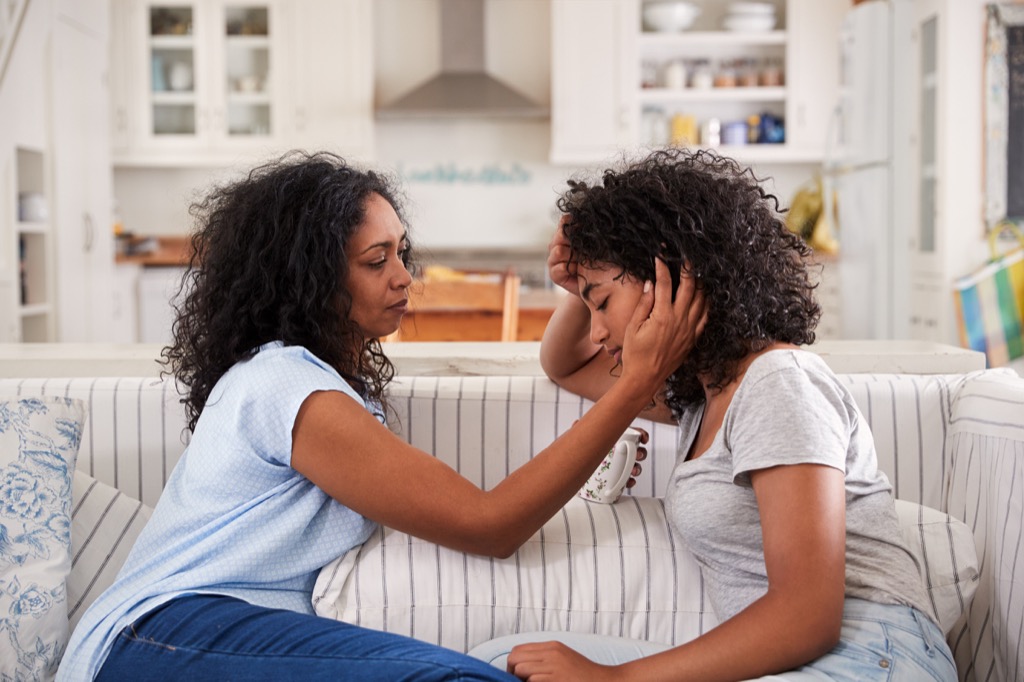
Your kids' self-esteem issues may worsen after you and your partner decide to call it quits. "Although a bad marriage is also harmful, the prospect of having to shuttle between two homes and to not have an intact family, does interfere with children's relationships with classmates and friends and self-esteem," says Rabbi Shlomo Slatkin, MS, LCPC, certified Imago Therapist, and co-founder of The Marriage Restoration Project.
8
You might have to reenter the workforce sooner than you'd hoped.

Those days of stay-at-home parenting may come to an abrupt halt following your divorce. While you could once count on your spouse's income alone to pay for everything, unless your ex is making millions, odds are your alimony payments won't be enough to cover the needs for your home without some supplementation, meaning you may need to start dusting off that résumé earlier than you'd hoped.
9
You'll probably find yourself in good company, at least!

While you might feel like everybody else you know is still married, the statistics don't lie: According to data from the Pew Research Center, as of 2017, 21 percent of American kids were living with a single mom, and 4 percent were living with a single dad.
10
You won't have the ability to be as spontaneous.

Those days of relying on your spouse to watch your kids when you feel like seeing a movie, hitting the gym, or going out with friends will be replaced by scheduled visits and shuttling your little ones between your home and your ex-spouse's post-divorce. As such, those last-minute plans may have to be on the back burner for the time being.
11
And scheduling will become a life-saver.

Zakeri says that scheduling things through a neutral third-party, like a Google calendar, can help keep things amicable—even when the feelings between the divorcing parties are anything but. "Google calendars take the emotion out of it when you're putting in events and out of town dates and vacation time—it's not about having a conversation, it's just about both having knowledge of the things you need to know now," she explains.
12
You might appreciate your ex-spouse more once you split.

While having to deal with non-stop arguments, bad habits, or a growing dislike of one another may have made you eager to end your marriage, once you split, you may see your ex in a new light—especially when you see them parenting solo. Even parents who had an acrimonious split often find that they "appreciate that [their ex] is coming from the right place when it comes to their kids," says Zakeri.
13
Your kids may be more likely to engage in risky behaviors.

Unfortunately, just because you no longer have to deal with a difficult spouse on a daily basis doesn't necessarily mean parenting is going to get any easier post-divorce. According to a 2016 study published in the Journal of Family and Economic Issues, children of divorce are more likely to engage in a range or risky behaviors, from drinking to drug use—particularly among teenage girls.
13
Your kids may pick a side—and feel bad about it.

Your kids love you, but that doesn't necessarily mean they're going to welcome the changes in their schedule that frequently accompany a divorce—and they're likely to feel pretty rotten about feeling that way. "Kids may feel worried and guilty about hurting their parents' feelings," after a divorce, according to Dr. Fran Walfish, a Beverly Hills-based family and relationship psychotherapist, and author of The Self-Aware Parent.
14
You'll spend a lot more time on administrative tasks than before.

Figuring out the who, what, where, and when is difficult enough when you've got a spouse to help you out. But when you're trying to shuttle kids between school, lessons, appointments, and friends' houses, and then have to add trips to two homes on top of that, it can feel like you've gone from parent to personal chauffeur overnight.
15
Possessions will be lost frequently—and it will be a big deal.
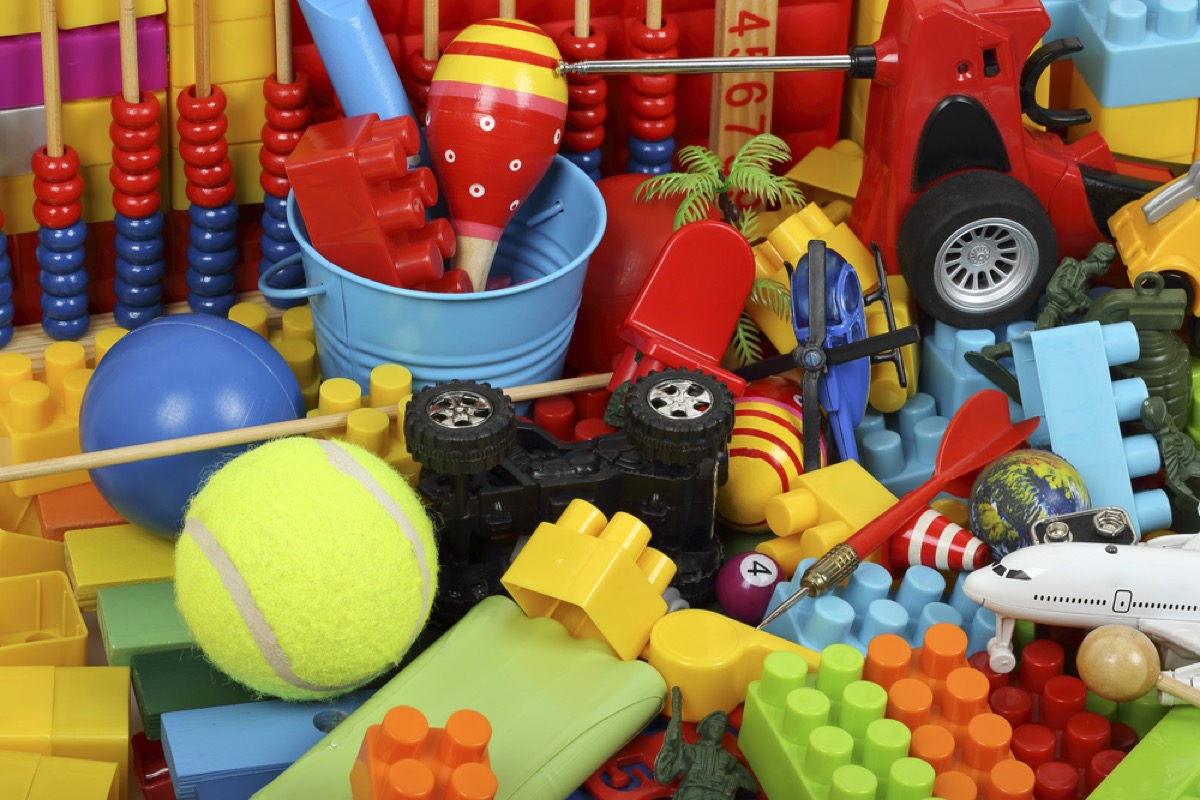
While you probably can't even count the number of toys, notebooks, and items of clothing your kids have misplaced over the years, when it's an issue of things being left at the wrong parent's house, it can be a major source of contention between you and your kids—and another annoyance for you when you have to collect that geometry textbook from your ex-spouse at 11:00 p.m.
"One of the most common problems teenagers with divorced parents face is the going back-and-forth between two houses. Most teens get frazzled when their favorite shirt or jacket is at Mom's house or Dad's and they are not there to retrieve it. Or perhaps they left their history book or homework assignment at the other parent's house—it is very anxiety-provoking for them," says Walfish.
16
Your kids may doubt their abilities.
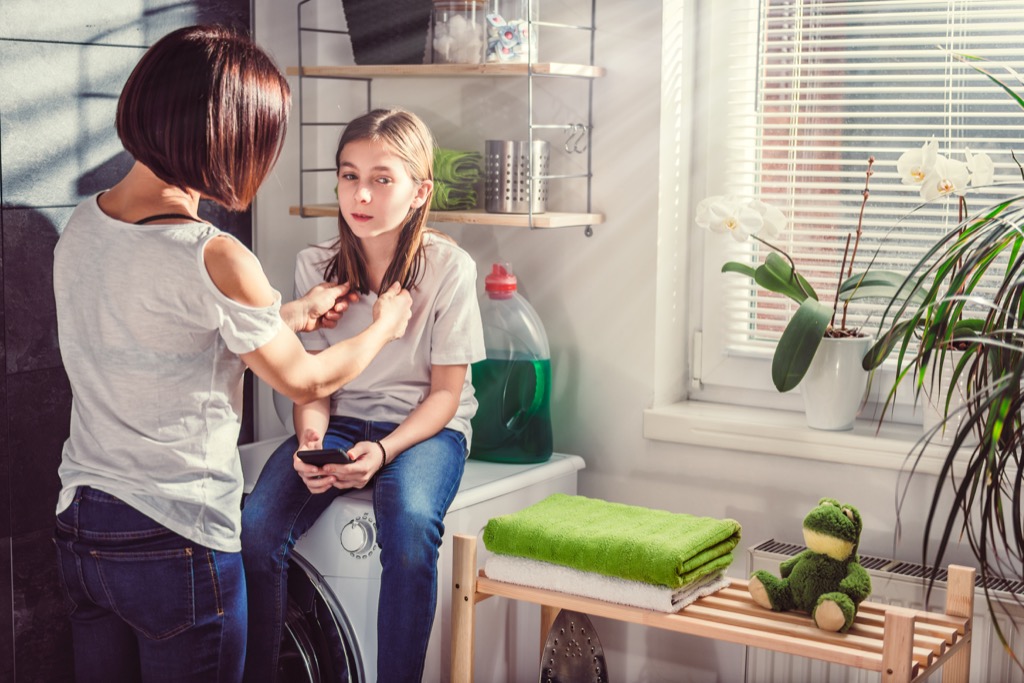
If you and your spouse are headed toward a split, it's important to make sure your kids know that their dreams and goals don't have to be cast aside just because your marriage is over. Sadly, according to a 2018 study published in the Journal of Family Issues, children of divorced parents are significantly less likely to earn college degrees than those whose parents stay married.
17
You may get more pushback from others than you'd expected.

Tons of people get divorced, so it's no big deal, right? While that may be true, that doesn't mean people are getting more accepting of the decision to split. According to the National Survey of Family Growth, in 2002, 46.6 percent of women said they thought divorce was the best solution when people couldn't work out their marital problems. From 2011 to 2015, that number dipped to just 37.2 percent.
18
You may have a hard time adjusting to time without the kids.

Most parents get into a routine with their kids over time, from getting them to school in the morning to tucking them into bed at night. When that is suddenly disrupted following a divorce, that can make things seriously lonely for the parent who's flying solo. While you may have precious little time to yourself when your kids are home, when they're with their other parent, you might just wish you had them—and all the chaos they bring—back.
19
But you'll eventually be grateful for the freedom.

While there is certainly a transition period when you first get divorced and find yourself kid-free for the first time in years, that doesn't mean it's all bad. You might just learn to love those nights you get to spend watching movies that aren't animated and eating ice cream without having to share.
20
You might feel a little heartbroken when your ex starts dating again.
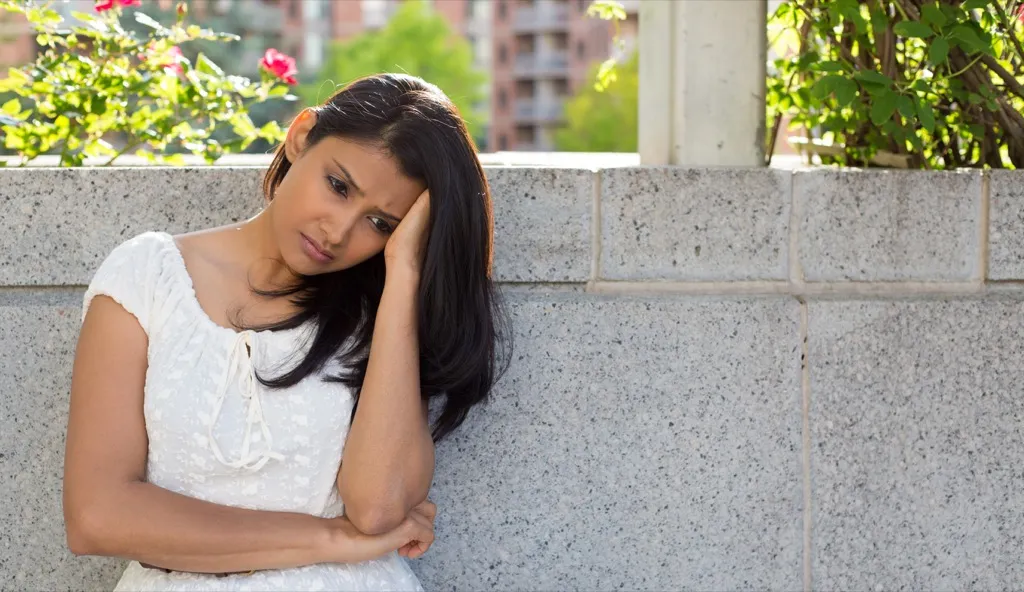
"Some ex-spouses are pretty heartbroken in general," says Zakeri. "While they may be angry when they're divorcing, their heart hasn't necessarily repaired," making it hard to see their exes move on—especially when that new love interest starts to form a significant relationship with the kids, as well.
21
Your ex-spouse isn't likely to change much post-split.

While you might expect that your divorce and their newfound time away from the kids might give your ex new perspective on life or your relationship, don't hold your breath waiting for an epiphany. "Who you lived with is still probably going to be similar to the person you divorced," says Zakeri.
22
You might find yourself strangely jealous when your ex moves on.

Even if your marriage ended badly, the green monster may rear its ugly head when your ex starts seeing other people. "You don't wish you were that new person, but you might wonder, 'Why can he or she be great with that person when they can't with me?'" says Zakeri.
23
Your kids might be angry about the change in their social schedule.
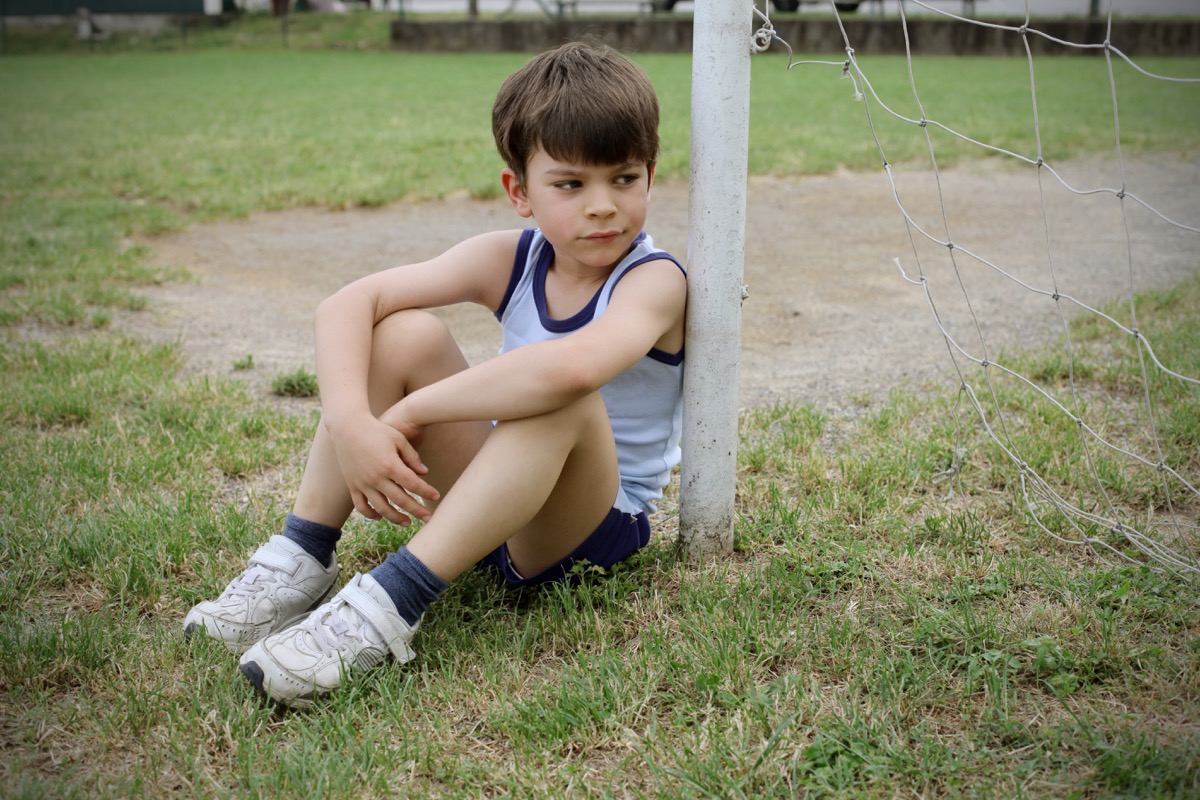
"Perhaps one parent resides a distance from school. Getting together with their friends on weekends or after school becomes a challenge when the kid has no ride to and from home," says Walfish. This may make your kids upset or even angry—and may make them less eager to spend time with you.
24
You need to be on the same page about your parenting strategy.
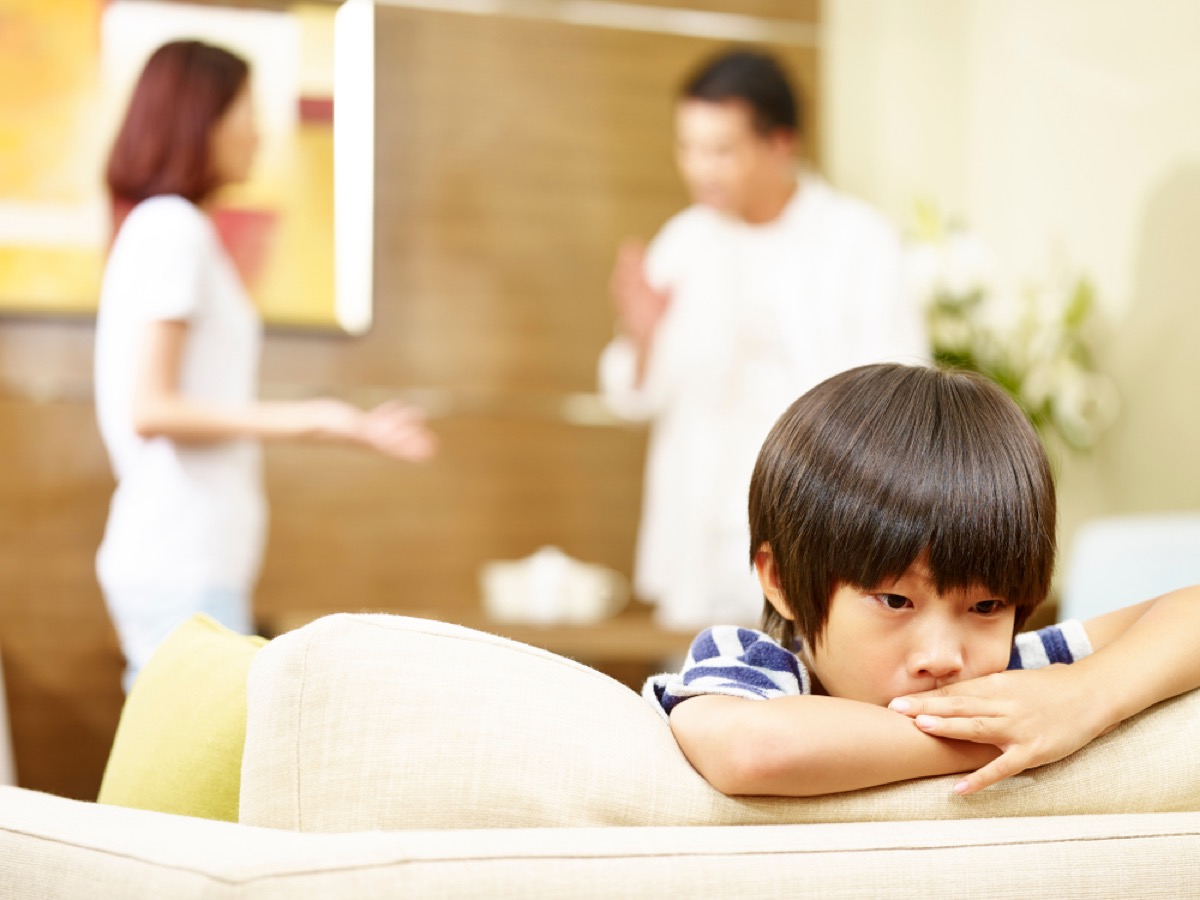
If you and your ex fought about your parenting styles when you were married, it's only going to get harder when you're divorced. Having two different parenting styles in two different homes can be hard for kids and may even lead to delinquent behavior, according to Walfish: "This is one of the reasons why parents need to agree on a mutual parenting strategy and implementation."
25
School events can feel like a minefield.

While they may be well-meaning, it's not always fun to field seemingly-endless questions about how you're doing, how the kids are coping, and how you're splitting assets—especially when you're just trying to get everyone in the car so you can make it to dance class on time.
26
Forming a relationship with step-kids can be a serious challenge.
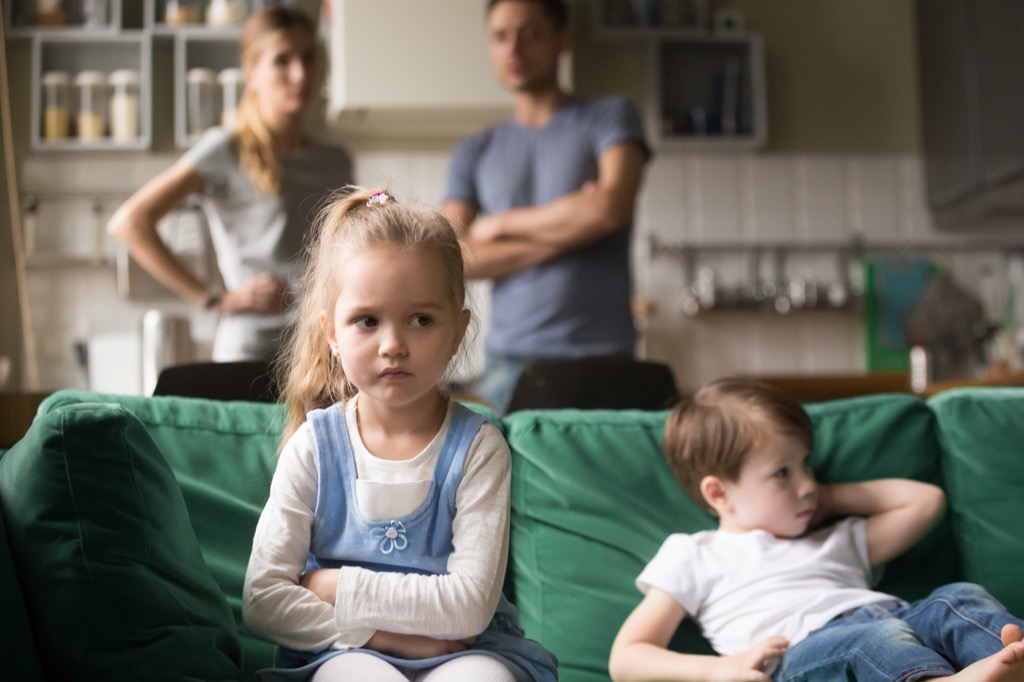
Whether it's you or your ex-spouse forming a blended family, don't expect to become the Brady Bunch right away.
"Change is really hard for kids. This [step-parent] may be a nice person or someone who gets your manicures done with you, but that doesn't mean they're the person the kids would like to be with," says Zakeri. However, "If you're consistent and predictable, be patient—the relationship does have some foundation there, and it is going to pay off in time."
27
And trying to make your kids like their new parent can make them pretty angry.
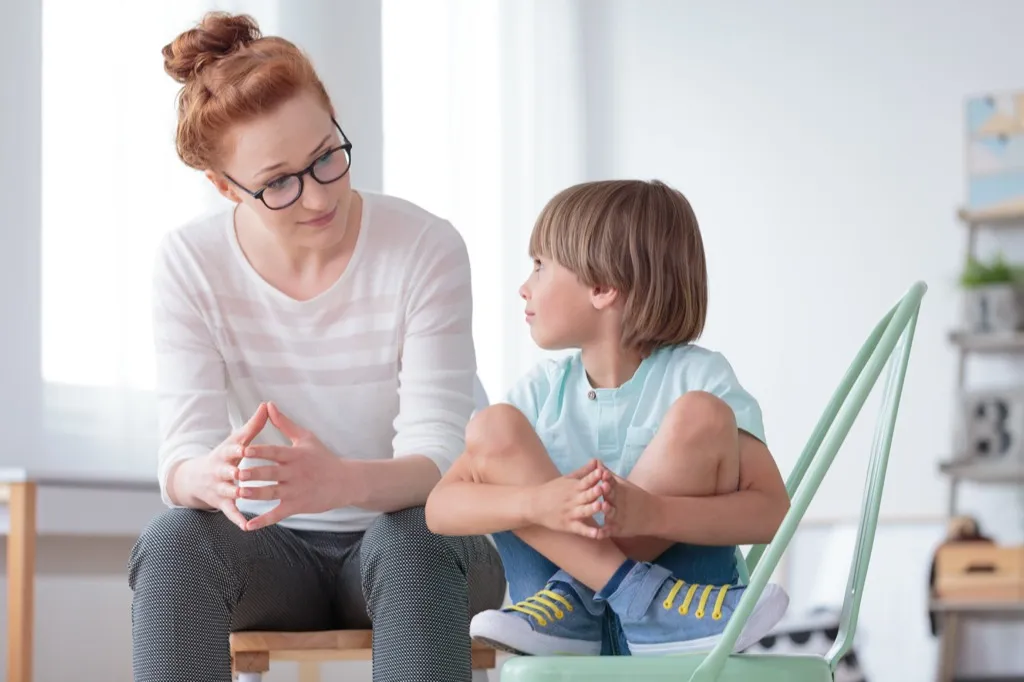
"Parents often take a step back so their new partner can spend time with the kids, but the kids find themselves resentful because the parent whose attention they seek has stepped back," says Zakeri. "The kids want still want your attention. They don't need you to sell your partner to them."
28
Even if things are relatively amicable, you might want a lawyer.
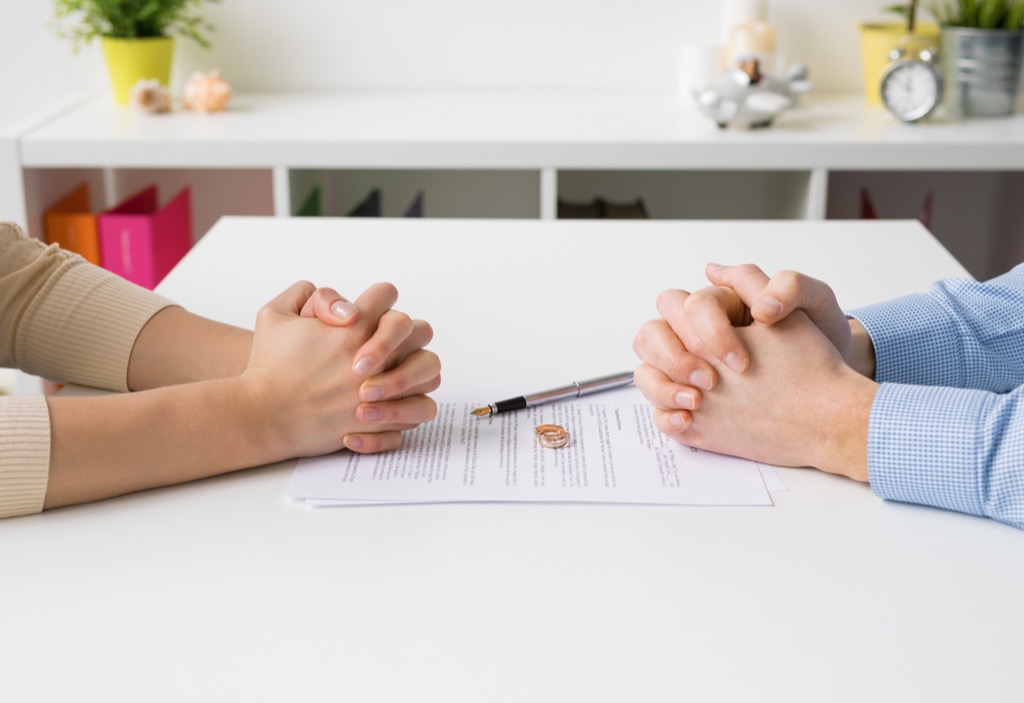
Depending on where you live, you might have to wait out a lengthy period of separation before you're legally allowed to divorce your spouse—and having a lawyer can help you figure out where you stand in the process.
"A divorce is often the last item on the to-do list after sorting out the custody of the kids, child support, and a division of matrimonial property, among other issues," says Jenny Johnston, a lawyer at Mann Lawyers LLP. "Sometimes just getting the opportunity to speak to a knowledgeable lawyer can help inform people about the list of issues arising from the separation as well as the options for getting to a resolution."
29
Dividing up your kids' property might just break your heart.
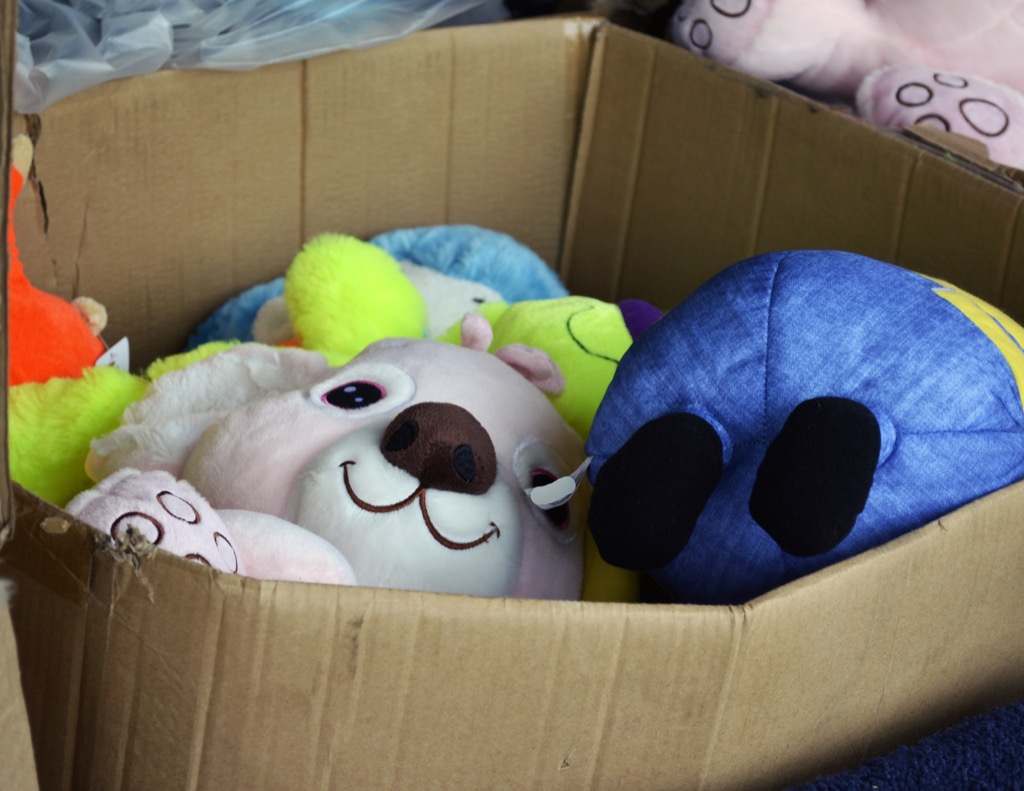
Even if you're the one keeping the house and most of the stuff in it, seeing framed pictures and baby blankets and beloved books go out the door to your spouse's new place can be heartbreaking, even for the toughest cookies.
30
Parenting immediately becomes a tougher job.
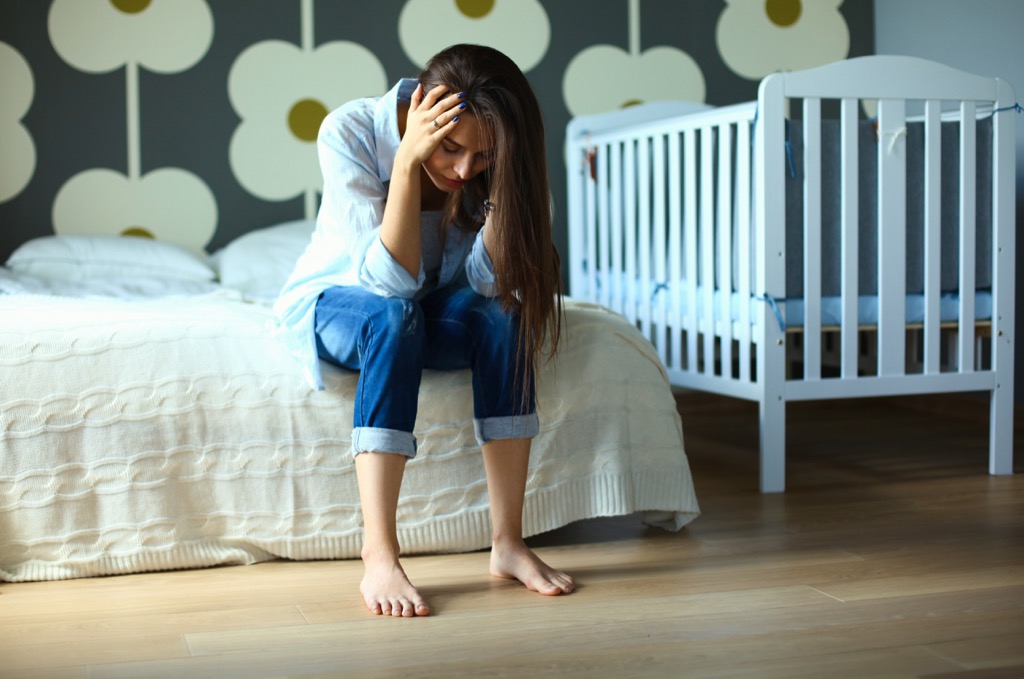
This is particularly true when your kids are young—while you may have once been able to leave your kids with your spouse while you took a shower or grocery-shopped, when you're splitting custody, your days with your kids will offer you virtually no breaks.
31
It'll be even more hurtful when people take sides.
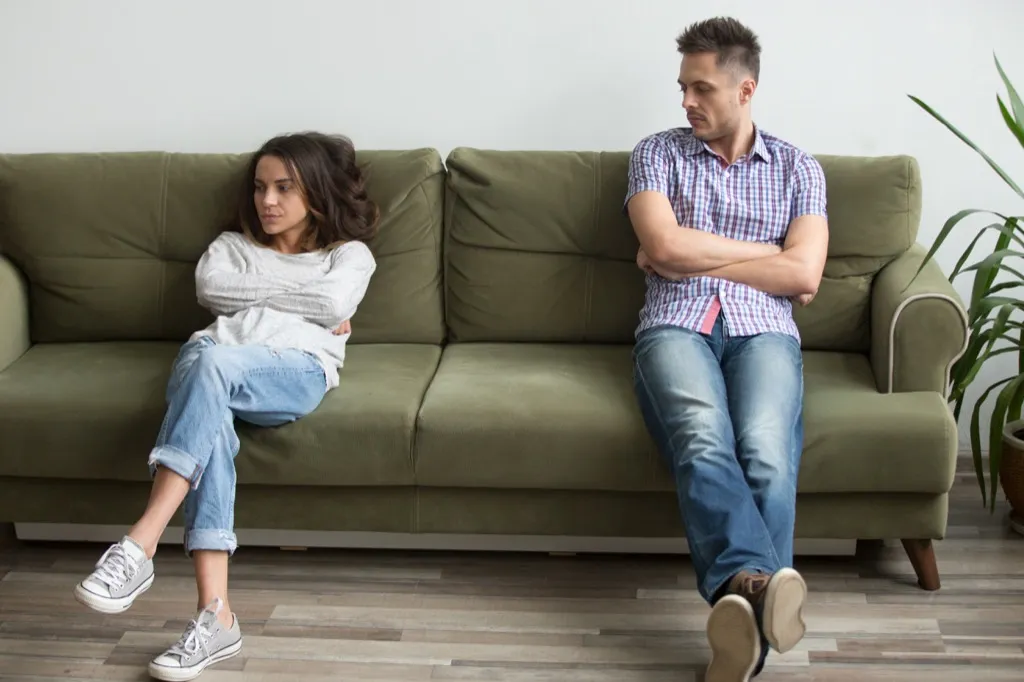
While it's never easy to have your friends or family members take sides in a divorce, when those people aren't just your loved ones, but people who have deep relationships with your children, when they decide to stop being part of your life, it can feel like a serious betrayal.
32
With time, things will get easier for your kids.
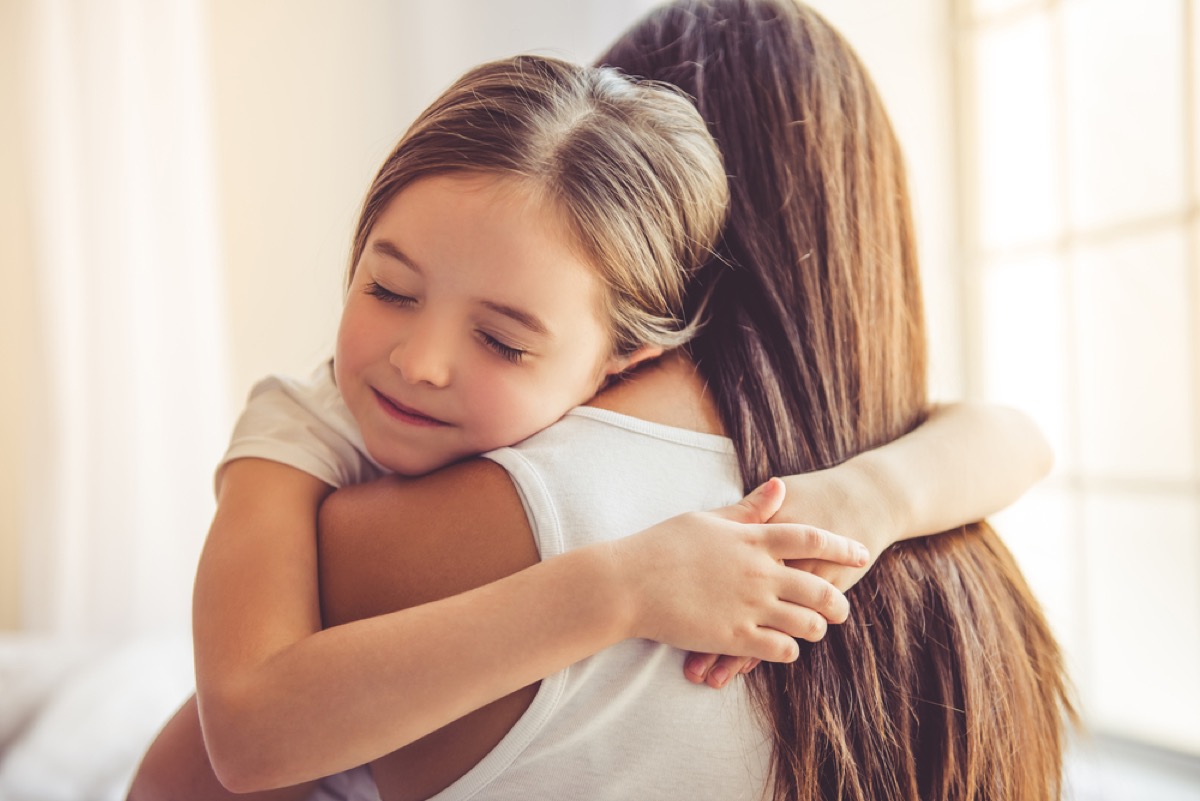
According to a 2012 study published in the Journal of Clinical Child and Adolescent Psychology, children whose parents had been divorced for a long time had greater career ambitions and higher self-esteem than the children of recently-divorced couples.
33
And things will eventually look up for you, too.

Whether you find that you have an easier time as a parent when you're flying solo, you reenter the workforce with a passion you never had before, or you meet someone who's much better for you than your ex ever was, there can be serious upsides to getting a divorce as a parent—even if they're hard to see right now.
To discover more amazing secrets about living your best life, click here to follow us on Instagram!





















